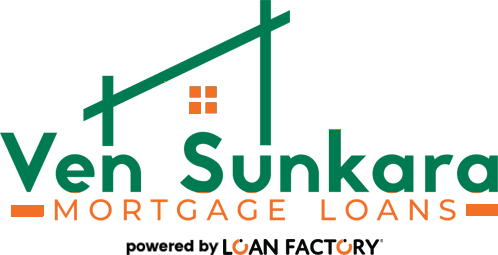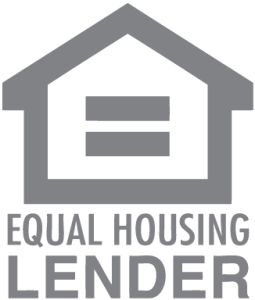Conventional Loan Program
- Conventional commercial loans are mortgages that are provided by a bank, credit union, savings institution, or other traditional lender.
- Conventional mortgages are secured by a first lien position on the subject properties being financed.
- The collateral is usually a standard type of commercial real estate: Multi-Family, Office, Retail, Warehouse, Industrial, and others on a case-by-case basis
- These loans require a personal guarantee.
- Borrowers must have the requisite cash for larger down payments, high credit scores and either some experience or retaining a management company for this experience.
Non-Conforming Loan Program
- For those borrowers who don’t qualify for a conventional loan or do not want to go through a full document underwriting process
- All commercial property types including Marijuana-Based
- Stated Income underwriting and Bank Statement Income underwriting
- Can be an investment property, mixed-use property, or owner-occupied business property
- Credit Scores can be as low as 600 middle
- Rates and Terms are commensurate with the strength of the Borrower and the strength of the Property
Factoring & A/R Financing
- Invoice Factoring is quick and flexible. We can fund $5,000 a month up to $2.5 million a month
- We utilize your account receivables as collateral and advance funds against the face value
- Invoice factoring allows your credit line to grow with your sales cycle
- Invoice factoring can have cash in your hands within 48 hours
- This is not debt. Never worry about adding payments to your monthly expenses
- If you experience a 60-90 day delay in payment on product-delivered invoices, factoring will keep your cash flow coming in regularly
USDA Loan Program
- The USDA (US Dept of Agriculture) helps borrowers by providing guarantees to lenders for rural businesses and properties.
- Its primary purpose is to create and maintain employment and improve the economic climate in rural communities.
- USDA Loans may be used for start-ups, business expansion, business acquisition, commercial real estate, working capital, machinery, equipment, inventory and debt refinancing.
- A USDA Loan allows up to 90% financing.
- This program represents a true private-public partnership.
Bridge Loan Program
- Borrowers can use bridge financing to fund real estate projects which are not ready for any type of permanent and long term lending.
- Bridge financing can give owners of real estate the flexibility they need to reposition and stabilize properties.
- These loans have maximum flexibility to fund any type of real estate for most any type of transaction or project.
- The Borrower must have experience in the industry and prove the transaction or project will stabilize for future refinancing.
- The Borrowers do not need good credit and often can use creative ways to contribute the down payment required by the Lender
- Bridge financing allows for quick turnaround time to allow the borrower to close in a short time frame.
Multi-Family Loan Program
- There are two standard ways to finance Multi-Family Real Estate: Conventional Lending and FNMA / FREDDIE MAC Lending.
- Conventional Lending can be found in our section on this lending choice.
- FNMA financing (The Federal National Mortgage Association) is commonly known as “Fannie Mae” Loans. FREDDIE MAC (FHLMC) has similar government guidelines. These loans are guaranteed by the federal government.
- Most FNMA apartment mortgages are non-recourse (except standard carve outs)
- Properties are underwritten using the Delegated Underwriting Services (DUS) program to make sure that lending parameters are met.
- Loan collateral may be traditional apartments, affordable housing, senior housing, student housing, and manufactured housing communities.
- Loan amounts start at $750,000 and go up with terms between 5-30 years and amortizations up to 30 years.
Residential Loan Program
- 1 – 4 Unit Residential Structures including Mixed Use
- Amortization up to 30 Years or Interest Only up to 2 Years
- Stated Program, Bank Statement Program, Verification of Employment Program
- Loans allowed with one day out of Bankruptcy (Case by Case)
- Minimum credit score is middle 600
Residential Purchase/Rehab Loan Program
- 1 – 4 Unit Residential Structures including Mixed Use
- Up to 80% of the Purchase Price & 100% of the Rehab Costs
- Loans up to 75% of the After Completed Value
- Loans are based on the experience of the Borrower along with the location by state and city
- Minimum credit score is middle 600
Residential Construction Loan Program
- 1 – 4 Unit Residential Structures including Mixed Use
- Up to 80% of the LTC (Loan to Cost)
- Ownership of land can be credited towards the down payment
- Loans are based on the experience of the Borrower along with the location by state and city
- Minimum credit score is middle 600
No Payment Home Equity Financing
- No monthly payments / 30 year terms
- 2nd position behind mortgage or trust deed
- 500 – Minimum credit score (middle)
- 80% – CLTV (loan to value) owner occupied
- 70% – CLTV (loan to value) tenant occupied
- $200,000 – Minimum FMV (fair market value) required
- 1 – 4 unit house(s) only
- Loan amounts – $35,000 to $350,000
- Availability: AZ, CA, CO, CT, DC, FL, IL, MA, MI, MD, MN, NC, NJ, NY, PA, OR, VA, WA
SBA 7(a) Loan Program
- This loan is the most common of all SBA Loans because eligibility is based upon the business and the principals.
- Funds can be used for any type of business except those specifically prohibited by the SBA Regulations.
- Primary consideration in the underwriting decision process looks to the repayment ability of the borrower from the cash flow of the business. Other factors as important as cash flow include management capability, collateral, and owner’s equity contribution
- Loan proceeds may be used to start-up business, assist in the acquisition, operation, or expansion of an existing business, need for working capital or additional equipment, and construction (to name a few of the eligible uses)
- SBA term length and amortization depends on whether the loan will be used for business only purposes, used in conjunction with real estate or a combination of both. Terms and amortizations can go from 10 years to 25 years.
- SBA Loans are always recourse, which means that a personal guaranty for the repayment of the loan is required. Full recourse loans make the sponsors guarantying the loan responsible for any and all shortfalls between the loan balance and sales price in the event of default and foreclosure as well as any applicable legal and ancillary fees.
SBA 504 Loan Program
- These loans must be used for particular purposes: To purchase equipment, machinery, furniture, fixtures, or other related materials; To purchase real estate including and buildings as well as ground up construction.
- The SBA Regulations now allow an SBA 504 Loan to refinance debt. However, to refinance an SBA Loan, the Borrower must have had the original loan for a period of two years
- There are three components to this loan: Borrower / Lender / SBA (CDC). The Borrower will contribute 10 – 20% of the transaction cost, the Lender and the CDC will contribute 50% each of the remaining balance. (CDC means Certified Development Corp and is an entity which is subsidized by the SBA).
- The term and amortization length is different for the Lender and the CDC. The Lender will have terms up to 10 years with an amortization of 25 years. The CDC will have offer a term and amortization of 20 years
- Personal Guarantees are always required for these loans. Full recourse loans make the sponsors responsible for any and all shortfalls between the loan balance and sales price in the event of default and foreclosure as well as any applicable legal and ancillary fees.
- Prepayment penalties will be part of the loan terms. The Lender prepayment penalty will be on a 5 or 10 year basis. The CDC will have a 10 year term.
Business Loans With Collateral
- Factoring (Account Receivables)
- Inventory Loans
- Purchase Order Loans
- Equipment Purchase & Refinance Loans
- Equipment Sale-Lease Back Loans
- Equipment Leasing Program
- Personal Guarantee / No Personal Guarantee
- Unconventional Collateral: Jewelry, Vehicles, Stocks & Bonds, Art Work, Antiques, And other objects of value
Business Loans Without Collateral
Daily Payment Loans
- Lite Documentation Underwriting
- Five (5) business days from full loan submission to close
- Loans from $25,000 to $5,000,000
- Business in existence for minimum of three (3) months – Standard Underwriting
Business is a Start-Up – Based on Borrower net worth, good credit & projections - Minimum credit is 550 middle
- Business revenue is minimum $50,000 annual
Weekly & Monthly Payment Loans
- Full documentation underwriting
- Twenty (20) business days from full loan submission to close
- Loans from $25,000 – $2,000,000
- Business in existence minimum of two (2) years
- Minimum credit is 640 middle
- Business revenue is minimum of $100,000 annual
Some Lenders We Work With
We have over 200 lenders ready to work with you to close the deal
Let’s Make Things Happen
Would you like a personalized quote for your mortgage? Rates are subject to daily changes and are tailored to your specific circumstances. Contact us for a complimentary quote.
“I am extremely satisfied with my recent refinance experience. The process was straightforward and uncomplicated, without any unnecessary costs or complications. Compared to other lenders I contacted, my closing costs were significantly lower, almost half the amount. Overall, it was one of the smoothest transactions I have ever had.”



 This is not an offer to enter into an agreement. Not all customers will qualify. Information, rates and programs are subject to change without notice. All products are subject to credit and property approval. Other restrictions and limitations may apply.
This is not an offer to enter into an agreement. Not all customers will qualify. Information, rates and programs are subject to change without notice. All products are subject to credit and property approval. Other restrictions and limitations may apply.